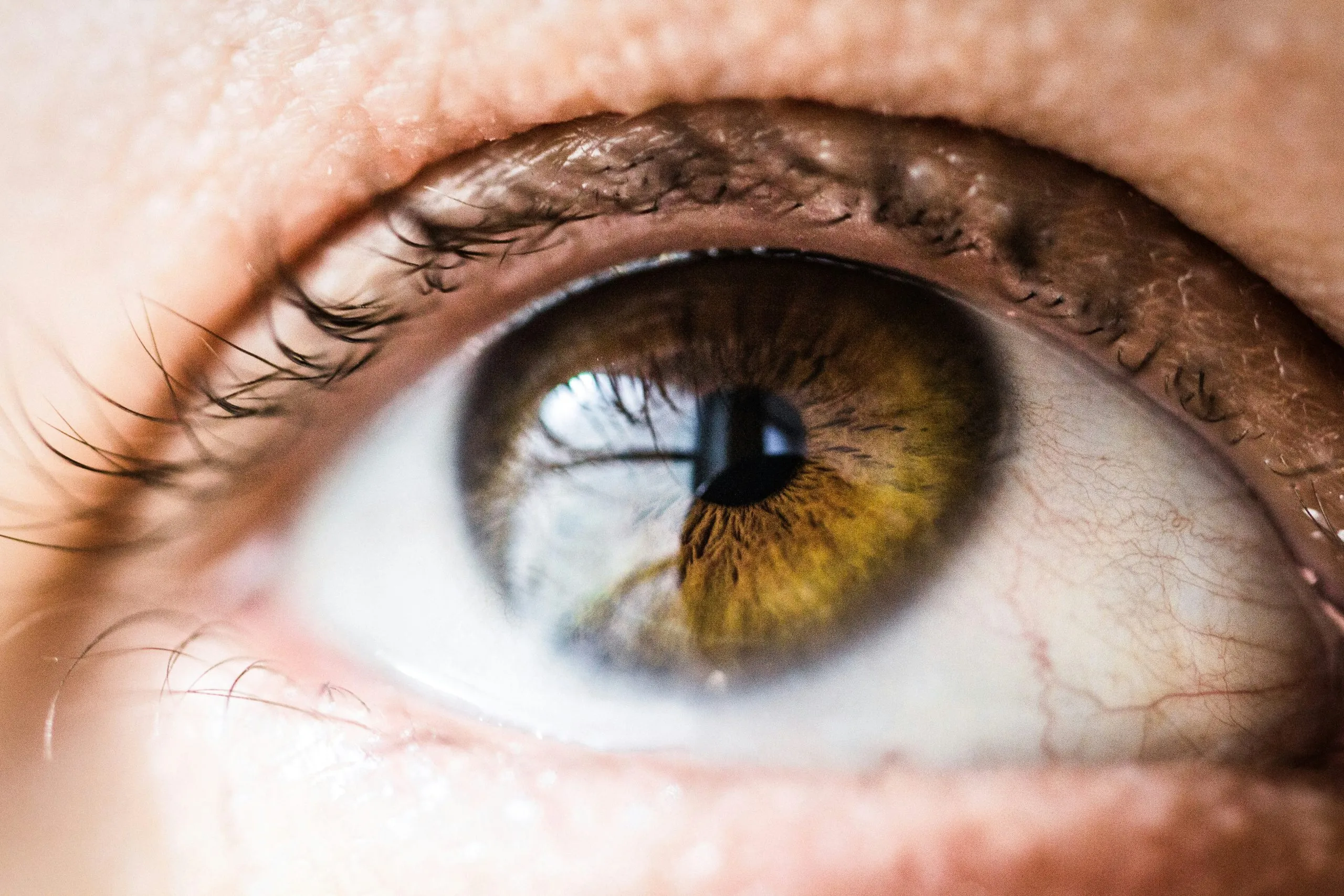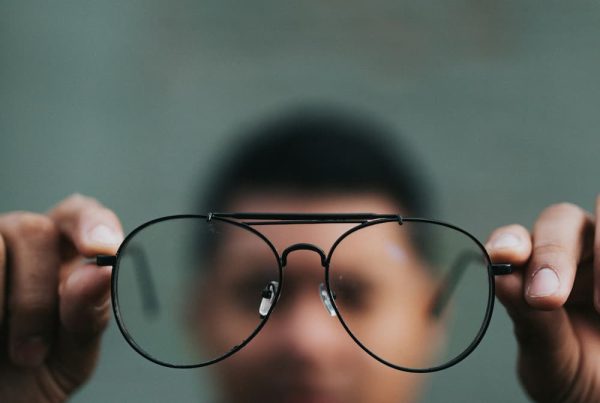How Prescription Glasses Help Your Vision
Many people do not give their eyes much thought until problems arise. Tasks such as reading, working at a computer, and driving all place demands on our eyes, yet we often do not notice small issues until they worsen. Regular eye examinations act as a key step in caring for vision, since they catch minor changes early and lower the risk of long-term damage. When combined with the correct pair of prescription glasses, these check-ups improve day-to-day life and protect long-term eye health. This post will explore the reasons why eye tests matter, how glasses address different sight problems, and what you can do to keep your eyes in good condition.
Routine Eye Tests
Visits to your optician allow a professional to check how well you see at various distances and to inspect the overall state of your eyes. By looking at key areas such as the retina, optic nerve, and eye pressure levels, an optician can spot emerging problems. Small changes can signal the start of conditions like glaucoma or macular degeneration. These illnesses often begin without clear warning signs.
For most adults in the UK, a check every two years is often sufficient. Children, older adults, and those who have ongoing health conditions sometimes need more frequent visits. You should always follow the advice of your optician, who will suggest the best timeline for your situation. Eye tests do not only measure how well you can read letters on a chart. They also check for signs of illness, examine the shape of your cornea, and assess your field of vision.
If a test shows that your prescription has shifted, new lenses can be arranged. This prevents you from struggling with outdated glasses that no longer meet your needs. By revisiting your optician regularly, you give yourself a good chance to correct small problems before they escalate.
Catching Hidden Problems Early
Some serious eye conditions begin so quietly that people only notice them after real damage has occurred. Glaucoma, for instance, involves a slow rise in pressure within the eye. Without treatment, it may harm the optic nerve and reduce sight, sometimes leading to permanent damage. By checking your eye pressure and the health of your optic nerve, an optician can spot early signs and advise on treatments to prevent further harm.
Regular tests also help in identifying other illnesses, including diabetes. Changes in the blood vessels of the retina can indicate high blood sugar levels. By detecting such issues early, you might avoid more severe complications later. In some cases, the eye examination might reveal signs of high blood pressure, which, if left uncontrolled, can pose serious health risks.
How Prescription Glasses Serve Your Vision
Prescription glasses do more than sharpen unclear vision. They help you avoid straining your eyes to read text or see distant objects. Whether you are short-sighted, long-sighted, or have astigmatism, your lenses are matched to your exact needs. This tailored correction lightens the burden on the muscles in your eyes, helping you remain focused for longer periods without headaches or fatigue.
Clear vision supports daily life in many ways. Driving at night is easier when you have the right lenses. Work is less stressful if you do not have to squint at your computer screen. Even time spent reading for pleasure can feel more relaxing when your eyes do not have to work as hard.
Some lenses include coatings that block reflections or reduce specific types of light that can disrupt vision. These coatings may be helpful if you spend hours on digital devices or frequently shift between bright and dim environments. Although people respond differently to these features, many find them useful for cutting down on strain and dryness.
The Link Between Good Vision and Well-Being
When you can see clearly, day-to-day tasks feel smoother. By easing the strain on your eyes, you reduce the risk of headaches, neck tension, and a general sense of tiredness. Not having to work so hard to read, focus, or identify objects at a distance can boost your mood, making you more productive at work or school.
Prolonged stress on the eyes may lead to problems such as blurred vision, double vision, or ongoing discomfort. If these issues linger, they can affect your mental state. For instance, you might feel anxious in social settings where you cannot clearly see faces or read signs. By addressing sight problems early and wearing glasses that fit well, you allow yourself to perform tasks with greater ease and confidence.
Children and Early Intervention
Children rely on strong vision for many parts of their development. A child who cannot see well may struggle to read the board at school or pick out words in their reading books, and they might not realise there is a problem. Regular eye checks play a huge role in spotting these hidden sight issues. Once detected, the right pair of glasses can boost a child’s ability to learn and join in with activities.
Routine checks for children help ensure that any changes in their eyes are tracked, so prescriptions stay up to date. In certain cases, using the correct lenses from a young age can aid in directing healthy eye growth, helping to avoid bigger concerns later on. Good vision also helps children stay engaged in sports or other extracurricular pursuits.
Protecting Your Eyes Beyond Glasses
Although prescription lenses help you see properly, there are other ways to look after your eyes. A balanced diet with enough vitamins and minerals supports the structures of the eye. Fruits, vegetables, whole grains, and lean proteins can assist in keeping your eyes well nourished. Leafy greens, peppers, and carrots are often recommended as beneficial.
Spending many hours at a computer, tablet, or mobile phone can cause eyes to become dry or tired. Try using the “20-20-20 rule”: look away from your screen every 20 minutes, focusing on a spot around 20 feet away for at least 20 seconds. This approach lowers strain and helps your eyes recover. Adequate hydration also matters, both by drinking enough fluids and ensuring that indoor air is not too dry.
Lighting is another important detail. Poor lighting can force you to squint more, while harsh lighting may cause glare. Setting up a pleasant amount of light helps you avoid these extremes. When you are outdoors on sunny days, choose sunglasses to shield your eyes from harmful ultraviolet (UV) rays. This helps to protect the surface of the eye and may reduce the risk of cataracts later in life.
Common Myths About Glasses
Some people worry that wearing glasses will weaken their eyes. In reality, glasses simply adjust the way light enters your eye, reducing the strain on the muscles that focus your vision. Age-related changes happen whether you wear glasses or not, but the correct lenses help you cope with shifts in sight.
Another myth suggests that only those with very poor vision need glasses. Even mild sight problems can make daily tasks more tiring. Whether your prescription is minor or strong, well-fitted glasses can allow you to read, drive, and work more comfortably.
It is also untrue that once you have glasses, you can skip future tests until you notice a large problem. Subtle changes in eye health, such as the early stages of glaucoma, can progress without obvious signs. Regular appointments help catch these problems before they worsen.
Why Professional Fittings Matter
The effectiveness of your glasses depends on several factors. When you get your lenses made, the optical centre must align with your pupils to minimise visual distortion. The shape and size of the frames must also match the contour of your face, ensuring the lenses rest in the correct position. This not only helps you see better but also prevents soreness on the bridge of the nose or around the ears.
Professionals at Glasses Store take measurements to ensure your lenses fit properly. Even small details, like how far the frames sit from your face, can affect your vision. By focusing on precise measurements, you will gain the full benefit of your prescription.
Selecting Frames and Lenses That Suit You
Frames come in many materials, each with its own advantages. Some people like the light feel of certain metals, while others prefer sturdy plastics. Others seek hypoallergenic options or flexible frames that better withstand knocks. The key is to balance your personal taste with your prescription needs.
When it comes to lenses, there are several possibilities. Some are built with higher “indexes,” meaning they can be thinner while still offering strong correction. If you have a strong prescription, these thinner lenses may feel more comfortable and look less bulky. Various treatments can help shield your lenses from smudges or reduce certain reflections. While these extras raise the overall price, many find they boost comfort or clarity.
When choosing frames, you might also consider your lifestyle. If you take part in sport, you may want a more robust pair or lenses made from materials less likely to crack. Those who spend time in bright light might benefit from tinted or photochromic lenses that darken under strong sunlight. There is no one-size-fits-all approach, so speaking to a professional ensures you select the correct options.
Boosting Your Eye Health Through Lifestyle
Aside from routine tests and wearing glasses as prescribed, there are simple steps to help keep your eyes in good shape. Taking regular screen breaks allows your eyes to shift focus and stay comfortable. This is especially helpful if you work in an office and stare at screens for many hours.
Staying active supports healthy blood pressure and circulation. Eyes need a stable flow of blood to perform at their best, and exercise helps with this. Walking, jogging, or cycling are all ways to stay active, but pick something you enjoy so you are more likely to stick with it.
Good eye care also extends to removing makeup fully and storing contact lenses properly (if you wear them). Failure to maintain cleanliness can raise the risk of eye infections. When in doubt, ask your optician for advice on safe eye care methods
Building a Long-Term Eye Care Plan
Having a regular optician is often a good idea because it helps you build a record of your eye health. Over time, they can spot small shifts in your vision. This timeline of information allows more accurate choices about your prescription. If you ever need a referral to another eye specialist, these records will be valuable.
Do not wait until you notice blurriness or discomfort. By that stage, certain conditions may have advanced. An eye care plan does not need to be complicated, but it should include routine check-ups, the right lenses, and sensible lifestyle habits. A little effort can protect your vision for years to come.
How Glasses Store Can Assist
Glasses Store provides an online platform where you can select from a broad range of frames to match your valid prescription. Rather than carrying out eye tests, we ask that you use a prescription from your optician or other eye care provider. Our site makes it straightforward to find frames suited to your style and vision needs, whether you require single-vision lenses, varifocals, or another type of correction.
If you need guidance on lens options or have concerns about your prescription, our team is available to offer suggestions and help you choose suitable specifications. We also feature a virtual try-on tool that measures your pupillary distance and lets you see how different frames look. This resource helps you pick a pair that feels comfortable and aligns with your personal taste. Through our online service, you can order glasses that fit well and support clear, confident vision in your everyday life.
Final Thoughts
Eye health is linked to your quality of life. A regular eye test serves as an early warning system for hidden illnesses and helps you keep your prescription up to date. When you have the correct lenses, you reduce strain and avoid the headaches and tiredness that can come from unclear vision. Children also reap huge benefits from early checks, ensuring that any sight problems do not limit their learning.
Lifestyle factors play a role in caring for your eyes. A balanced diet, good hydration, proper lighting, and sensible breaks from screens all help keep your sight sharp. By forming a strong relationship with your optician and following advice on when to schedule check-ups, you can take control of your long-term eye health.
At Glasses Store, dedicated professionals aim to offer a high standard of care and customer guidance. With the right glasses and a plan for ongoing eye health, you can preserve clear vision and comfort in your daily activities. Make it a habit to arrange regular tests, stay informed on any changes in your eyes, and use the support of quality eyewear to lead a full and active life.
Read our guide on the latest Oakley Glasses Trends





